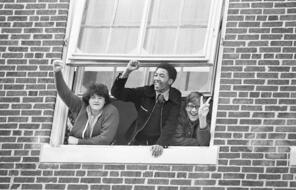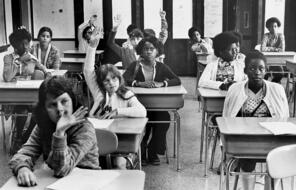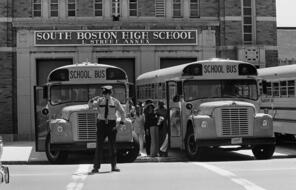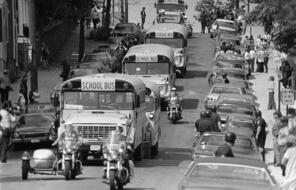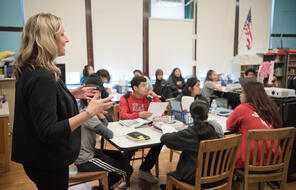African American Parents Decry School Conditions
At a Glance
Subject
- Civics & Citizenship
- Social Studies
- Democracy & Civic Engagement
- Human & Civil Rights
- Racism
Ruth Batson was a pioneering civil rights and education activist in Boston. She helped lead the NAACP’s efforts to challenge educational injustice in Boston in the 1950s, 1960s, and 1970s. In her chronology of those efforts, she describes the complaints about Boston’s public schools that African American parents voiced in the early 1960s:
Parent complaints became more numerous, more vocal and more persistent. The complaints reflected concerns about the physical aspects of the schools, as well as the quality of teachers, outdated educational materials, overcrowding and disrespect displayed toward Black children.
Parents reported on the stench from the old slate urinals in the Sherwin School on Sterling Street in Roxbury. Mothers who brought their children for recreation to Madison Park, across the street from the school, complained that the stench spoiled their afternoon visit to the park.
Another group of mothers were furious about the use of the back of Krueger Beer ads 1 in the classroom for various assignments. Upon inquiry, however, they learned that the enterprising young teacher did not always have sufficient paper and asked a relative who worked for the company to supply the beer ads. While the overcrowded classrooms and outdated books outraged the parents, the disrespect Black parents felt was aimed at them and their children was most painful. There were no black principals and very few black teachers in the Boston public schools. Parents perceived this situation as having no advocates for their children. 2
- 1Krueger was a brand of beer that was no longer produced after the 1960s. Like many products, Krueger beer was advertised on paper posters and flyers.
- 2Ruth Batson, The Black Educational Movement in Boston: A Sequence of Historical Events (Boston: Northeastern University, 2001), 63–64.




